
Here's my Top 10 links from around the Internet at 10:00 am today in association with NZ Mint.
Bernard is back tomorrow with his version.
As always, we welcome your additions in the comments below or via email to bernard.hickey@interest.co.nz.
See all previous Top 10s here.

1. Rejecting credit
Regulators around the world are working hard to get banks to offer more credit because they see it as a key way to increase production and grow the economy and tax base. Without that growth, public debt can't be repaid.
But what if businesses reject borrowing? A survey of manufacturers in Britain is finding just that.
More than half the respondents to the British EEF credit conditions survey said they didn't want to rely on banks and they would use internally generated funds to fund their enterprise. Doing that locks in slower (but surer?) growth in economic activity. More from Reuters via the NY Times:
Industry turning its back on sources of credit would be bad news for the [British] government and the Bank of England, which are trying to get lending going with measures such as the Funding for Lending scheme (FLS) that makes it cheaper for banks to lend to small businesses.
Some improvement of such lending may be starting to emerge in the second quarter, said EEF economist Andrew Johnson.
The survey, published on Sunday, found the balance of companies who said the cost of credit was rising rather than falling sank to 2 percent, the lowest since the survey began in 2007, although the improvement was largely concentrated among big businesses.
"The counterpoint to this cautious optimism, however, is that there is continued growth in the number of companies that appear to no longer see external finance as an important funding source to support their business," said Johnson.
"This is a result mirrored by other surveys and will surely slow investment."

2. Westpac vs London money managers
Bill Evans, Westpac Australia's economics guru has been going around the world with new messages.
One is that he thinks the US economy will disappoint, secondly he says the AUD's decline is only due to a weak US, and thirdly he reckons the euro crisis is far from over. That's what he has been telling his world tour audiences.
However, they are telling him something quite different. They tell him they are expecting the US to surprise on the upside, that the AUD will fall on its own and may never recover, and that the worst is past in Europe.
Of course those views are directly opposed to the messages I have been delivering during the meetings. It has made for interesting discussions. The issues are also inter-related.
[It was] a fascinating trip, highlighting how our markets are so intricately linked to the big global issues. I remain very comfortable with our key views and will enjoy watching our story unfold from the safety of my holiday abode!
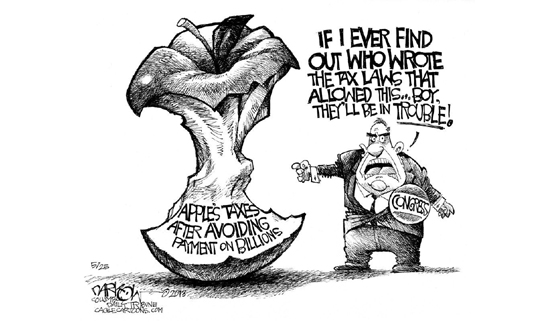
3. 'Slower' growth?
Frantic Chinese growth has underpinned the Australian economy and by implication, ours.
But China's new leadership now understands the transition from an export-led economy to a consumer-led one will involve lower growth and a shift from 'quantity' to 'quality'. Much like America, the policy levers will be trying to protect or improve employment as their main focus.
8+% growth rates are history. But still, their economy created 3.4 million new jobs in the first quarter of 2013, slightly higher than a year earlier thanks to the services sector. Think about that. The US has a quarter of China's population ( 1.344 billion vs 314 mln) and created 317,000 new jobs (s.a. vs same period a year ago). On an equivalent population basis, China is creating two and a half times as many new jobs as the US. It's hard to see how that can be maintained.
And that will affect us, down the line. There will be positive implications as this vast increase in people with spending power seek out our products. And the obvious negative ones, from the same forces. We are going to need to hold our nerve, even while staying engaged. At the moment I think we have it about right, but our responses, opportunities, and defences will need to change as the implications play out. They may be 'normal' changes for China, but they will impact us in hard-hitting ways. But thank goodness we are not Australia.
Here is the Reuters story that sparked those thoughts:
The new leadership is also more cautious about adopting new stimulus measures because of the debt overhang left by the 4 trillion yuan package unleashed during the global financial crisis in 2008.
The lending boom it sparked fuelled a property bubble and left local governments under a pile of debt. Ratings agency Fitch estimates local government debt at 13 trillion yuan, or a quarter of GDP. Government data puts the number at 10.7 trillion yuan.
The new leaders are keen to reform the economy, said Zhang Bin, senior economist at the Chinese Academy of Social Sciences (CASS), another top think-tank. "They are less keen to stimulate the economy," Zhang said.
Since taking office in March, Premier Li has been pushing efforts to cut red-tape and reduce the government's role in the economy while supporting market competition.

4. Today's raw market data ...
A quick new week update:
| as at 11:10am |
Today 9:00 am |
Friday |
Four weeks ago |
One year ago |
| NZ$1 = US$ | 0.7876 | 0.7994 | 0.8288 | 0.7772 |
| NZ$1 = AU$ | 0.8306 | 0.8362 | 0.8288 | 0.7784 |
| TWI | 73.65 | 74.49 | 75.52 | 70.46 |
| Gold, US$/oz | 1,386 | 1,400 | 1,431 | 1,584 |
| Dow | 15,224 | 15,047 | 15,089 | 12,388 |
| Copper, US$/tonne | 7,282 | 7,311 | 7,351 | 7,396 |
| Volatility Index | 15.14 | 16.63 | 12.55 | 23.56 |
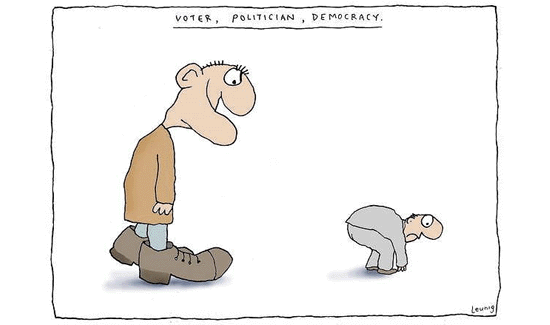
5. A non problem
What better evidence about the failure of 'austerity' in Europe than unemployment levels - and especially youth unemployment. Spain is usually held up as the key exhibit, but a recent report said that Greece had a youth unemployment level of 62.5% in February 2013.
But Daniel Gros says it's actually a 'non-problem' - only one that has been politicised by those who want to avoid the pain of adjustment.
It turns out that EU defines 'youth' as under 25's. But the 15-19 year old's are mostly in school. Those that are not do have the reported unemployment rate but they represent only 9% of that age group - that is, 62% of the 9% are unemployed!
In the 20-24 age group, the situation is similar but not as tiny - but it is only half the headline rate if you look into it. However, the actual situation won't bring the headlines. And, says Gros, it diverts attention from the real unemployment issues:
In purely economic terms, one could thus argue that youth unemployment (especially teenage part-time unemployment) is much less important than unemployment among those who are in their prime earning years. Moreover, young people have the option of continuing their education, thus adding to future earnings power, whereas continuing education is a much less viable alternative for their elders.
Europe has a general macroeconomic problem, owing to demand factors that interact with a rigid labor market, rather than a specific youth-unemployment problem. This implies that there is no need for ad hoc measures for young people, which merely risk overloading welfare systems with even more exemptions and special rules.
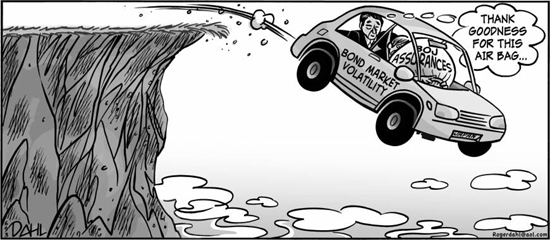
6. Grist for the xenophobes
Demand for Auckland's property by Chinese is just a corner of a much wider trend that includes the US West Coast, Vancouver, and Sydney. Here are some comments that resonate here from the ABC in Australia:
"China is a nation that loves to save money. To buy property is in our bones so [if] you have the money but you don't have [any] property to buy, the investor will start to look overseas," Ms Zhang said.
"I know some of my friends, they just fly for the weekend to look for properties. It's great, you fly overnight and look at the properties for two days and you place the deposit, and you fly back Monday and go to work."
Ray Chan, managing director of investment consultancy Window to China, says investment from China is only starting to gain traction.
As policy makers in China bring in initiatives to curb speculative demand and stabilise property prices, an increasingly number of investors are looking offshore.
Beijing is bringing in a 20 per cent capital gains tax in selective cities as well as requiring a larger deposit from second home buyers.
"Now is the perfect timing that we saw with the Chinese government policy to slow down the growth and to restrict the speculation on the property market so the developer and the investor all looking for a new market," Mr Chan said.
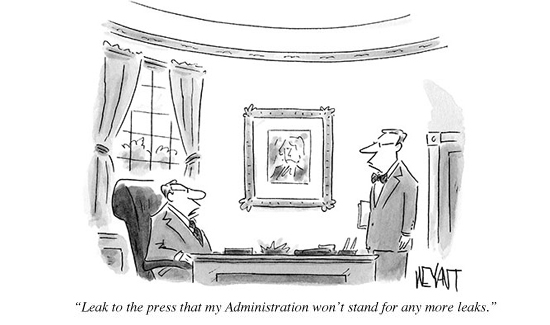
7. 'An extraordinary advantage'
ANZ boss Mike Smith is still bullish on China, and especially on what the next 20-30 years will mean for both Australia and New Zealand. He does seem to regard New Zealand as a bit tacked on to Australia, though. We're a by-play for him. The AFR has a review:
Smith, who has spent many years in the region heading HSBC’s Asian business before joining ANZ, said as more and more Chinese people moved to the cities, spending on infrastructure and housing would continue to underpin demand for Australian resources, like iron ore.
“I don’t think the resources boom is over,” he said. “Prices are still higher than they were five years ago and there’s nothing to say they’re going to be dramatically different in the next few years.”
While everyone is talking about the end of the minerals boom – something he disagrees with – Mr Smith said insufficient attention had been paid to the potential surge in Chinese demand for soft commodities, such as grain and meat.
“People just don’t get the soft resources story at all,” Mr Smith said on the sidelines of the Fortune Global Forum in Chengdu, a city in China’s southwest where ANZ has set up an operations centre and plans to open its next retail branch.
“Demand for protein is just growing exponentially in this part of the world, and as this middle class develops, the amount of income which is available for choice in terms of what people wear, where they live and what they eat is going to have a significant impact on that demand.” He said: “Countries like Australia and New Zealand are just at an extraordinary advantage because the logistics costs are so much less than anywhere else.”

8. Lessons learned?
Bloomberg editors reckon that "after five years of experimentation, data collection and debate, the fog is lifting. It is now possible to lay down some broad principles for future downturns."
Here is their list of what we should have learned. (Of course, each of the following has more explanation in their article.)
-- There are no magic numbers.
-- Fiscal expansion works.
-- Fiscal contraction can backfire.
-- Currencies matter.
-- Automatic stabilizers work.
-- Culture matters.
-- Austerity isn’t always bad.Retreating from misguided economic policies is always tough for elected leaders. Let’s hope that, after a lot of trial and error, pursuing the right course is getting easier.
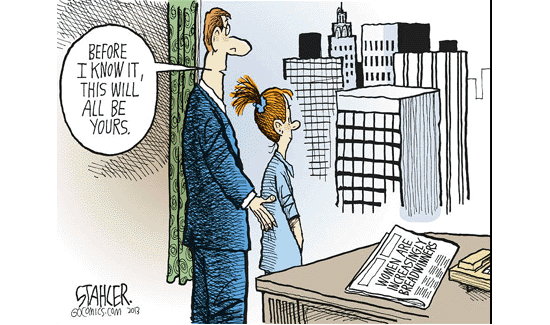
9. 'The gold rush is over': Roubini
Dr. Doom, Nouriel Roubini (remember him? we used to follow every word he said) has six reasons why the gold bubble has burst, and why gold prices are likely to move much lower, toward US$1,000 by 2015.
But now he isn't predicting doom for the general economic situation, rather doom for gold.
So gold remains John Maynard Keynes’s “barbarous relic,” with no intrinsic value and used mainly as a hedge against mostly irrational fear and panic. Yes, all investors should have a very modest share of gold in their portfolios as a hedge against extreme tail risks. But other real assets can provide a similar hedge, and those tail risks – while not eliminated – are certainly lower today than at the peak of the global financial crisis.
While gold prices may temporarily move higher in the next few years, they will be very volatile and will trend lower over time as the global economy mends itself. The gold rush is over.
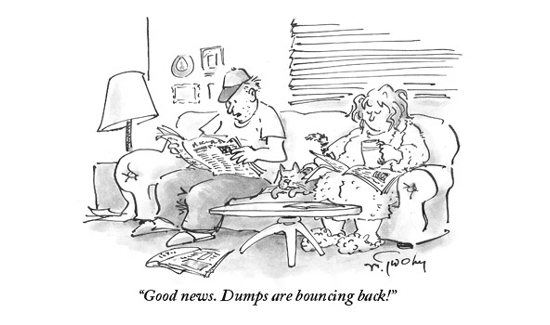
10. Today's quote
"Money doesn't talk, it swears." - Bob Dylan
Road deaths
Select chart tabs

49 Comments
#1. Government frustrated that companies are choosing not to borrow. Pardon ? Naughty naughty businesses apparently. But it seems to me that companies read very well the path forward for them to be sustainable and to make money. If they choose not to borrow, they are probably right.
Of course they do! It is very pleasing to se the tide slowly turning against the banks. The downside is that they will begin to use their power and influence to get the politicians to make laws that puts them on the up again. It would be nice to see that power come back to the people. Daid anyone read Carmel Fisher's item in the Sunday Star Times yesterday? She states that depositors funds belong to the bank! It would be nice to see them more accountable.
In NZ I dont think its likely, that we'll see law changes (complusory loans?). Even if so however I think there is a noticable voter backlash building and Im sure when it comes down to the line Pollies will chose to sacrifice the bankers rather than disappear into obscurity themselves.
regards
murray86, interesting article - I guess this is the one you refer to?
I found myself giving a Banking 101 lesson, which my client apparently found enlightening. I explained that in New Zealand, like most modern economies, we have a system known as fractional reserve banking where only a fraction of bank deposits are backed by actual cash on hand and are available at any time for withdrawal.
I wonder if Carmel might do us all a favour and point out where the RBNZ has lodged the reserves of the declared bank funding claims. Complicated foreign funding claims might be counted here.
Furthermore, Carmel might consider letting the depositor population know what the declared RBNZ reserve ratio is as the US Federal Reserve does.
And just to further extend our hope, maybe she can reconcile this credit rating company claim,
In January Moody's highlighted that, at more than 140%, the New Zealand banking sector has the highest loan-to-deposit ratio out of 13 Asia-Pacific countries. Of the big four banks, S&P figures as of December 31, put ANZ's at 135.9%, ASB's at 136.6%, BNZ's at 162%, and Westpac's at 147.4%. Kiwibank's was 109.9%a
with Greg Pytel's maths proclaiming something different is actually being executed on behalf of depositors in New Zealand and it has little to do with the checks and balances of a fractional reserve banking system.
Westminster Bank (before it merged into National Westminster Bank), intended to lend out 86.5% of every deposit. For every £100 deposited, the bank lent out £86.5, while the remaining £13.50 was retained in the banks reserve with a small portion of it kept in the Bank of England. In practice, this ratio was the bank's control tool on deposit creation process, ensuring that the amount of money supplied to the market was limited. According to this principle, for every £1 deposited, a bank lends out £0.865. After only five cycles the amount is reduced to below £0.50 and after 32 cycles it is below 1 penny. If this process continued forever the total amount of money lent out of a pound would be less than £6.41. With every cycle of deposit creation, a bank built up its reserves, ultimately collecting almost entire £1 for every £1 initial deposit. Added to capital repayments, interest payments on loans and the bank's own capital base this system ensured that that there was always enough money in the bank for every depositor.
According to Morgan Stanley Research, in 2007 UK banks loan-deposit ratio was 137%. In other words the banks were lending out on average £137.00 for every £100 paid in as a deposit. Another conservative estimate shows that this indicator for major UK banks was at least 174%. For others like Northern Rock it was a massive 322%. [For more details, refer to Table A.] Banks were "borrowing on the international markets" and lending money they did not have but assuming to have in the future. Likewise, "international markets" were doing exactly the same. At first sight it might not seem so much different than deposit creation. Deposit creation is lending money by the banks they do not have on the assumption that they will get enough back in sufficient time in the future from borrowers.
On closer examination there is a remarkable difference. With every cycle of the 86.5% loan-deposit ratio every £1 deposited is reduced becoming less than £0.50 after five cycles and less than 1 penny after 32. With a loan-deposit ratio of 137%—lending £137 for every £100—not to mention 174% or indeed 322%, the story is drastically the opposite. Imagine a banker gets the first £1 deposit in the first week of a new year and lends it out. Imagine that twice every week in that year the amount lent out comes back to him as a deposit and he sustains such deposit creation process with a ratio of 137% twice every week for the year. This is a perfectly plausible scenario on the current electronic financial markets. By the following New Year's Eve, the final amount he finally lends out from the original £1 is over £165 trillion (165 with 12 zeros, or over 16 times the amount governments have so far injected into economy). The total amount lent out in a year by a banker is over £447 trillion. Significantly with a loan-deposit ratio 100% or above no reserve is created.
Stephen Hulme - I have no problem with that. You are right on the .....money.
But the backing - even that which could be pointed to - was production/consumption-based. While that could be increased, the smoke and mirror lever could be extended. When than no longer could, it couldn't,
You needent holler at me about 'tell us when, or shut up'. You can work it out from your own numbers - or do you think that a less-levered system in different hands would magically alter our physical predicament?
You are doing the hollering - I just asked when a citizen could expect it to end so he/she and cohorts could make arrangements to satisfy outstanding obligations in advance. A very reasonable request given your absolute confidence of the inevitable demise of a resource based society and the exchanges of value representing those resources we have devised to date.
I told you the dates.
Overshoot was back around 1980, peak oil (essentially peak useful maximum energy flow) started in 2005, and we're bumping across the top of the Gaussian.
I told you - and your figures support it - than those who hold long/big obligations, are too late already. I've never said anything else, here, and that's been the case for some years. Sure, it will be a game of musical chairs, but the wealthy tend to stay in those games until a revolution removes their heads, The suck is upward. We cleared our mortgage in '08 from memory - and thought we'd pushed it quite far enough. Today's will have to be inflated away - isn't that what QE will do? They're not stupid - why do you think they're indulging in such a bizarre strategy?
And I gave you some homework. Probably ignored?
I repeat: it's already too late to 'make arrangements in advance' - that goes with the territory, oddly enough. The question is: what happens to all those expectations? Nicole Foss thinks massive deflation, I think a combo of inflated prices (essentials-for-life) and deflated prices (discretionary spends). You are the kind of 'expert' I'd have expected to reason that one through, but I hadn't bargained on the 'put down the messenger to deny the message, so it can't be true, because I don't want it to be true' syndrome.
Keen has some ideas, Daly has some ideas, Martenson, Kunstler, Orlov, Heinberg, Trainer; all good thinkers. For the most part, they're Generalists rather than Specialists, a point worth some serious pondering. Why don't you learn for yourself?
Right - hope you are better prepared than this outfit was.
Bond yields have risen from some of their lowest levels in decades in the past fortnight, leaving funds with large holdings badly hit.
What a strange outlook, the banks have too much cash so arnt stable? wierd....
I dont see there is a link between the OCR rate and "bank" stability myself. I do agree though that the OCR is 1% too high at the least. Now dropping the OCR to improve our economies stability yes, sure that makes sense.
regards
Kimy - you didn't answer his question.
If it represents the inflated revaluation of an existing item - like a house - then it is nothing in terms of underwrite. That's not 'cash', that's wishful thinking, greed, optimism, whatever.
The planet cannot - any longer - underwrite the endlessly-growing expectation that 'money' can somehow 'make more money'. If folk do that now, more and more it will be at the expense of someone somewhere else.
This is very fundamental and the answer lies in the sum of all the replies. The banks put depositors money to work, that is the basic principle behind banks. $10 dollars doesn't earn as much as $100, so 10 depositors with $10 each will reap the bank more while the depositors get a share of the risk payment. The problem lies with the fact that the banks are not answerable for the level of risk they put depositors funds to. Check their terms and conditions. They get to profit from the risk without carrying the risk themselves, that is shifted to the depositor.
The "flush with cash" bit comes from the fact that they recognise that they are able to charge higher interest rates with higher risks (the "risk dividend"). Thus high LVR laons are more attractive to them than low, they can make more money! Businesses are a good target because comercial loans carry an increased risk factor, therefore many comercial loans start out at 10% or above. Where business are able to fund their growth internally it is wiser for them to do this, as it keeps the banks fingers out of their till!
"The problem lies with the fact that the banks are not answerable for the level of risk they put depositors funds to."
The problem lies with banks period. Making money from money is a game(unearned income) that can only be played while the underlying fundamentals support it. GFC tell you the fundamentals ran out, we are in the flat spot before the drop on the other side of the curve.
Secondly interest rates are irrelevant to a bank, which is where Kimy is well off the mark. Banks make money what ever the interest rate, banks make money from the flow of money. A cut on the way through if you like, fractional reserve just amplifies that.
Kimmy understand the issue - banks can't drop interest rates until depositors start being prepared to accept less then 3.50% - 4.00% for their money on deposit. Without that mortgage rates are stuck at rates that currently provide around 1% or less margins to banks, and their modelling won't let them take it other than marginally lower from there. Cutting the OCR won't make much difference as banks will still have to price deposits where depositors will accept them - otherwise why do you think deposit rates aren't at 2.50% - 2.70% where they normally would be with an OCR down here ?
No, if they cut them too much deposit funds flow elsewhere, and in a world where CFRs are regulated closely, banks have no option but to meet the requirement. And where do banks risk losing those deposit funds to, amongst other places, into the housing market of course, too low interest rates just love the housing market.
So blame the depositors, both locally and globally Kimmy, theyre far too greedy, they/we want a return on their money rather than gifting it to you in the housing market, otherwise they'll be joining you for that short period until the banks have to replace those funds with higher rates. Its simple right ?
This form of QE is a bust (MHO (ie lending yet more), the only way to get some traction out of the zero bound trap is to put the money into main street's pockets via Govn infrastructure type jobs...ie create demand....no demand, no growth, no need to borrow.
dumb b*ggers the lot IMHO.
regards
I conclude, Scarfo, that while staying on topic, you have deftly negotiated a slurr on the good name of Bankers.
The unfortunate inclusion of the word fart has been deemed necessary to transmute the joke to "not only farts"
The criteria desired is for, intelligent , articulate, but robust.
I am pleased to report you have IMO met the sites requirements on all counts.
I'm sure any offence to the banking fraternity was unintentional.....or might I suggest a disclaimer in future inuendo.
One cannot but smile to oneself at the exuberance of the French in the face of adversity.
Hollande announces the Euro Crisis is over ?
Vive la Francaise !
WTF?
This Frenchman is either delusional or he has been using something that would have him arrested in NZ
Has he not noticed that nothing has changed , growth remains aneamic , the debt is still there and growing , companies are contracting , imports are falling , austerity is doing untold damage , and money printing will eventually debase the curency and the Capital markets .
Unemployment is likely to create major social upheaval and unlike the early 1900's there are no colonies to ship them to ,
France is up there with the worst of the them , with public service workers having the largest secured guarenteed pensions, among the highest salaries and the shortest working week
No No, Boatman...the crisis is over.!..and now the reality sets in, the New Normal finds a rebirth....the Greeks took one for the team, and now the E.U can enjoy a slightly more comfortable misery for the forseeable.
De bonnes nouvelles...! the rats they did not eat all the croissants, see here are some useful scrapings for you mess ami.
I remember telling the Greeks to chat to Argentina before taking on the IMF resolutions, of course nobody in Greece reads here, bu that's not the point is it.
on the other hand, the song from which the quote was taken is one of the finer Dylan classics...
http://www.bobdylan.com/us/songs/its-alright-ma-im-only-bleeding
Agreed on the song billsay.......although I think Positively 4th Street said it better ....and then on to ,of course
Like a rolling stone....
You said you'd never compromise
with the mystery tramp but now you realize
He's not selling any alibis
as you stare in the vaccum of his eyes
and say do you want to......make a deal
well how does it feel..?
Chuckle. :) But the pack aren't far behind.
You sense a little unsettledness, bit of unease, though? I do. These folk - left, right, scribe and mortgage-holder - have been waiting for what, five years now, for their familiar routine to continue? Must be quite puzzling if you were brought up on growth economics and not taught to think.
But isn't the point however that the "familiar routine" you refer to has indeed continued for the last five years. I recall joining a forum called "Global House Price Crash" (now defunct) back in 2003, expecting the music to stop soon thereafter. AndyH from here was one of the commentators on that site who moved over here around that time, if I recall correctly.
Since then we've sold four properties in four different locations within NZ and the band played on (for us) for all of those transactions. One of us has also since retired and drawn down on a nice superannuation nest egg - and last year the other of us not yet retired earned +7% before tax on their superannuation portfolio.
Point is, pdk, that you're here telling everyone to get off the bandwagon and have been doing so for years I understand.
Meanwhile many of those who just get on with life - living and investing in the current paradigm - are doing better for themselves and their families year after year. Sure, maybe that wealth accumulated in both tangible and intangible assets might dissipate through the unrentless assault of the crony capitalist's on the average citizen .. but there are things our dear leaders could do to make the living in the current paradigm better.
You have given up on the current paradigm - withdrawn to your off grid, off reticulated services lifestyle - from where you sit on the sidelines snarping at every 'fool' who in your opinion is silly enough to take out a mortgage or invest in a kiwisaver account.
What you never speak of is what your children are doing? Are they trying to live in this current paradigm, much like everyone else?
Well, I'll tell you, mine are - with young children, mortgages, student loans, kiwisaver - the lot. They are at the prime of their life. They should be allowed to envision a positive future for them and their children - granted it will be different than your youth or my youth, but at what age were you when you stopped being positive about the future and retreated, so to speak?
Sounds to me like it was around the time you finished up on the DCC. Unable to effect the paradigm shift you decided to devote your life to criticising it (the current paradigm) from the sidelines.
Problem is that now - you not only direct those criticisms at political decision-makers and crony capitalists - but also at the average Joe (young and old) trying to improve their lot in life. You want us all to think our endeavours are futile. It's just becoming annoying (for me anyway).
I was brought up on growth economics too but I was also taught to think - and the thinking me finds you overly self-assured regards your predictions - stuck in the positivist paradigm - reliant on models that forecast the future - sure somehow that we now know everything there is to know about physics and energy.
As I've said many times on here - I prefer Thomas Kuhn's view on that - we will likely never find ourselves closer to the truth. The future history of humankind has not yet been written. There are many generations yet to be born, yet to discover and yet to dream.
Well said, Kate. I too can be a bit of an Eeyore, and it's a comfortable old suit to wear.
Yet, like Steven Pinker, Stewart Brand and a number of others, I do think that ac-cent-u-ating the positive is fundamentally important. Whole nations (if you read Spengler/David P Goldman) have disappeared from the face of the earth simply because they did not hustle up enough positivism to bother to reproduce themselves.
So parading through, with the oh-so-fashionable 'The End Is Nigh' sandwich board, is not, on balance, for me. And Absolutism (certainty/my way or Ze Highway/scientific consensus) frankly scares me witless: that way lies Jim Jones and a barrel of Kool-Aid. Not that I have much faith in Democracy: the Makers are well outnumbered by the Takers, and it won't end well.
But, somehow, the world keeps spinning, and as long as we don't start exporting our junk to Outer Space, it will become the feedstock for a new world (literally, if we post it down into a subduction zone). It's a big old planet, and we don't know much about it......
Kate get a hold of Tony Watkins, "The Human House" and take a read. A thinking New Zealander that I have met personally. I have taken the time to meet Tony and his words to me were, you and I are 1:10.000 in the population. He is right and his book shows great foresight that transcends Architecture. If you can't find a copy from the Library then buy direct from Tony.
What saddens me from your post is your +7% earnings without really questioning where that came from. Really that was 7% unearnings, what was that about truth?
Thanks, have ordered the book from the university library - should be interesting as I love philosophy - combined with architecture, even better.
Yes, I know those super fund returns are coming from the same ponzi that most returns come from - it's predominantly a property portfolio - sad but true, and indeed last years returns were way down; normally we get double digits annually from that particular fund. Same goes for all the capital gains we've made on direct property ownership in the past. But what would you prefer .. that no one did any future planning for themselves? Should we all just sit back and expect the government to carry on providing a universal benefit in our old age? I reckon that's even worse social behaviour.
Point is I'm just participating in society as best I know how - taught by my parents, who were taught by their parents who lived through the depression years - to live frugally and to save - that's my 'truth'.
Kate - actually, criticising crony capitalists, bankers, and growth politicians, won't achieve anything. But if there is a problem, and a bottle-kneck, well, it pays to keep the eye on the ball.
But change - as Margaret Mead once said, starts with individuals, and from the bottom up.
That 'trying to improve their lot in life' collectively, is the global commons problem in a nutshell. Trainer (2010) - I'll send you a copy if you want - talks of 'The Simpler Way' as being the only sustainable way; but like me, doesn't think we'll get there. He too thinks we'll crash, collectively trying to 'improve' our lot.
http://simplicityinstitute.org/education-mindfulness-and-degrowth-new-reports
Coming from a member of academia, I find Trainer's criticisms of it interesting.
http://simplicityinstitute.org/wp-content/uploads/2011/04/TrainerEducationSimplicityInstitute.pdf
And just a we bit assumptive, re CV :)
Well that's interesting. An Institute with four Fellows - all PhDs - and you're telling me present day youth shouldn't try to 'improve their lot' ? Why pray tell did these Fellows of the Institute pursue their own higher education in the first place if not to get ahead in life?
And I see Dr Trainer is still collecting his paycheck from the same social institution (the education sector) that he criticises in the article. Not to say he hasn't got some valid points - but he over-generalises. I read a number of other articles on the Institute's website - one spoke about living simply and one of the benefits being you could then save money. But isn't saving fiat futile in your opinion?
Point is - my students 'get it' that the world is an unfair place - we teach it all the time in the social sciences. They 'get it' that fish stocks are poorly managed; that consumerism is killing the planet and all that jazz. But they also 'get it' that change will only come by challenging and outsting the crony capitalists, bankers, and growth politicians. You can't divorce the social from the political.
What about a power down kiwi bet?
Mr Grimwood is certain of his future, he writes on another thread today.
"Those of us who look ahead without prejudice, think that globalisation and corporatisation have to collapse in the absense of growth - and that the final point of that trajectory, in say 20 years, is local local local. Local food, living, transactions."
So according to Murray by 2033 exports and imports in New Zealand will have collasped to nothing?
I believe this is pure speculation and New Zealand is more likely to be exporting something close to what we currently do. And by that I mean in actual physical amounts, litres of wine, kilos of milk solids etc. Because we all know PDK contempt for value measured in $ terms.
Kate, I felt your overview of PDK's reign of terror was thoughtful, and delivered with respect even if a little polarized...given the opposition , understandable.
While I too subscribe to the positive that life must go on, and it is more than myself I must serve the needs of in this life, by choice not demand, it is however probably fair to say I feel strongly the proliferation of our species unchecked , will hold serious consequences for the planet,the creatures that co-habitate, and innevitabley our own kind.
I don't get up in the morning feeling doomed or negative, nor do I have the desire to castigate those who don't subscribe to what (IMO) is clear to me.
The science aside, in the early days here I had my run in's with PDK and felt the barbed tone questioning my ability to think without dissonance.....to which I responded with veiled scorn.
Over time I had to ask myself , was I to remain antagonistic with this poster who showed a real committment to his beliefs, because I had been offended at an earlier engagement ?
What was positive in that..? nothing, so I engaged again without the notion that he was trying to offend me....funny enough I found a lot more value...the positive was back.
I'd guess he, PDK post's here out of respect for the collective intelligence he feels are capable of at least being open to scientific hypothosis.....as opposed to being here to lord it over the less fortunate in the grey matter, I mean hell he could do that just about anyplace on the internet.
Anyhoo, I think there are things in your piece there PDK should consider without predjudice...for the sake of the positive.
My recommended read is...The Art of the Commonplace...Wendell Berry.
Thanks glad you enjoyed the discussion. The interesting thing is you refer to pdk's position as "beliefs";
... was I to remain antagonistic with this poster who showed a real committment to his beliefs.."
My point about pdk is - he doesn't see his worldview as a belief-system - he sees himself a man of "facts" - those undisputed things that represent "truth". And those who don't accept his "truth" (which to my mind is a vision of a future that no one, not even pdk, can predict) are fools.
Kate... if it has not yet come to pass, it can only be belief , even if the science of historical observation supports the theory, it remains a theory which cannot include intervention divine or natural.....not to mention unintended consequence polluting the petrie dish.
The theory requires absolute belief in the science to predict scientifically speaking ,and may prove at some distant point to be reasonable enough to have found justification.
I belive everyday, there are too many of us, with the science of animal , insect, extinct and still living to support my theory or belief................I hope like hell everyday I'm dead wrong about that.
Because as you rightly point out until it has come to pass, it's just some guy , somewhere, thought maybe with reason, that it ...probably should happen if the science of observation was as infallible when looking to predict as we accept it is historically.
Annnn I think we know the answer to that now don't we.
observation theory
Observation is the extraction of information from sensory experience in such a form as to make that information available to a wider cognitive system.
In the sub-atomic world of Quantum Theory, by the very act of watching, the observer affects the observed reality
KH - thank you for the critique. I thought long and hard, before I entered this particular kitchen - after all life is short, fun, and probably I won't prevail.
Can we try an analogy? Take a heavy smoker. We know that they are addicted, and they may too, or they may be in denial. As they go on, they front up at the 'doc's. First it's flu's and colds, then it's short of breath, themn it's gum trouble, then the triple bypass, then the lung cancer.
Every presentation can be dealt-with, medically, as a one-off. Ultimately, though, the real problem is the smoking. All along the journey, the valid course of action is to stop. The other operations are, then, attempts to prolong the action, while not remedying the real problem.
I see mainstream environmental folk as those who were smart enough to see a problem, but who still want to enjoy the habit (or are addicted!). They advocate cutting back, or perhaps not indulging in a high-tar brand. (I once protested the Longbeach in a 12-foot dinghy, but it didn't stop the smoking) That's valid as a stop-gap, but only if it buys time to educate or effect a withdrawal. Otherwise, it's just prolonging a doomed course of action.
The medical choice is either to suggest that, or to patch every symptom up, on a body which will eventually succumb anyway, What would you choose? I choose to suggest that the patient should withdraw, on the basis that the outcome is better
Go well
PDK. You choose to suggest the patient withdraws. And I would too. But I don't decry any other conversation about other things anybody might choose to have. But you do decry those.
We have conversations other than your topic. Yes. I know. Deckchairs on the Titanic etc. Yadda Yadda. Yes it really annoys you. We heard already. Peace. K
HughP I think suddenly turned off some 6~9 months back, speculation but it almost seemed like as the sun was rising so the curtians got drawn, quick.
Definate unsettledness.....Qs are being asked, why have we not recovered? how much longer til its back as it was? I sometimes get these conversations, really no one want to know my version of their futurem Im a die hard pessimist.
So are the Pollies not utterly complicit? where do we see any NZ Pollie standing up and saying sorry ppls we need to re-think....no its, hang on we'll be OK. Yet from the comments of Brownlee and a few others I think its known...they after all have the overview and enough reports to warn them.
I think you are being unkind, a little anyway...ie when you can look at most of the population across generations how few there are that said things along the lines we are publically. Hubbert did and Shell asked him not to, they need not have feared it didnt register. There was an opportunity after WW2 not to go baby crazy....could have been managed then. In my case it took an article by Gwen Dwyer on food in mid Oct 2006 after peak oil for me to have a wtf? moment....months of reading followed, disbelief hardening to realisation of fact...it probably took a year....
In terms of growth economics, maybe its hard wired? Look at all species, they grow uncontrollably until their environment cannot support them, then their population collapses. Past human civilisations seem to do the same thing. I often wonder if oil has been more of a curse than a blessing, in terms of our premature extinction in about 150 years, from AGW effects, yes.
regards
Kimmy - it is relatively simple and many complicate it too much on here. I know it, its my game. My response was to your statement that the RBNZ should drop rates and I was trying to explain why it wouldn't make much difference as the RBNZ has limited ability to make much further difference in other than the short term on this- depositors aren't going to accept a much lower depo rate wherever the RBNZ sends the OCR, and banks will want to stay ahead of their CFRs and pay up for it.
Yes I agree banks have an army of risk managers but interesting you see yourself as more more expert on the risks than them. Sure, they can make mistakes, and youre right that they have a wad of money available to lend and will push it to the limit, but our lot on this side of the world are well capitalised and forever monitoring their average ratios. But if we get a US style corerction in housing prices, they'll be closed shops as far as lending is concerned for a long time, and that's what the RBNZ's trying to avoid.

We welcome your comments below. If you are not already registered, please register to comment.
Remember we welcome robust, respectful and insightful debate. We don't welcome abusive or defamatory comments and will de-register those repeatedly making such comments. Our current comment policy is here.